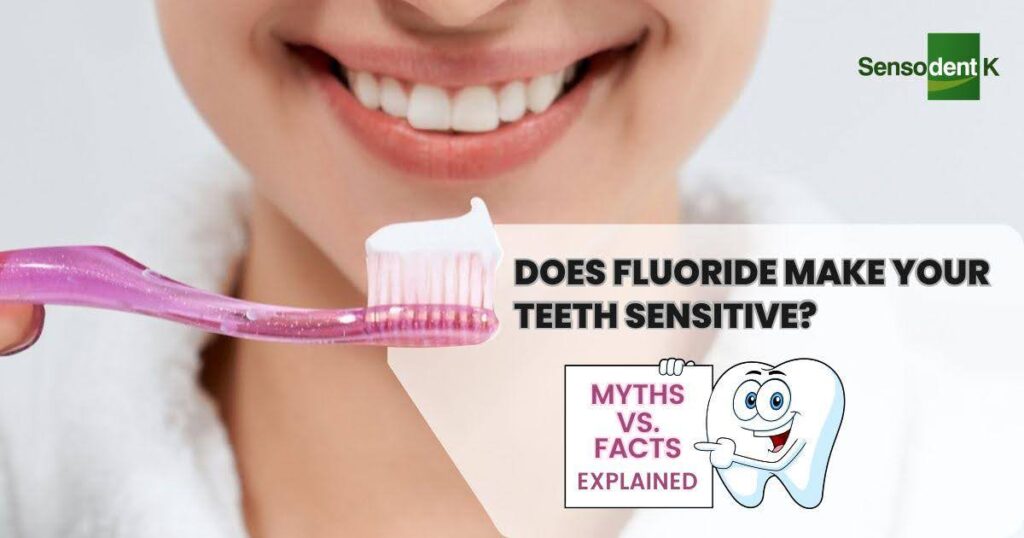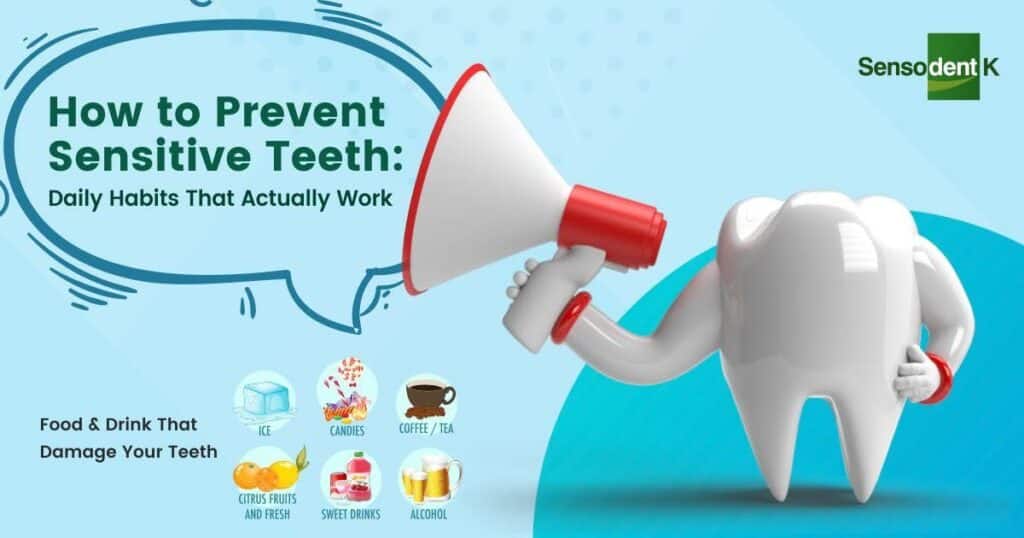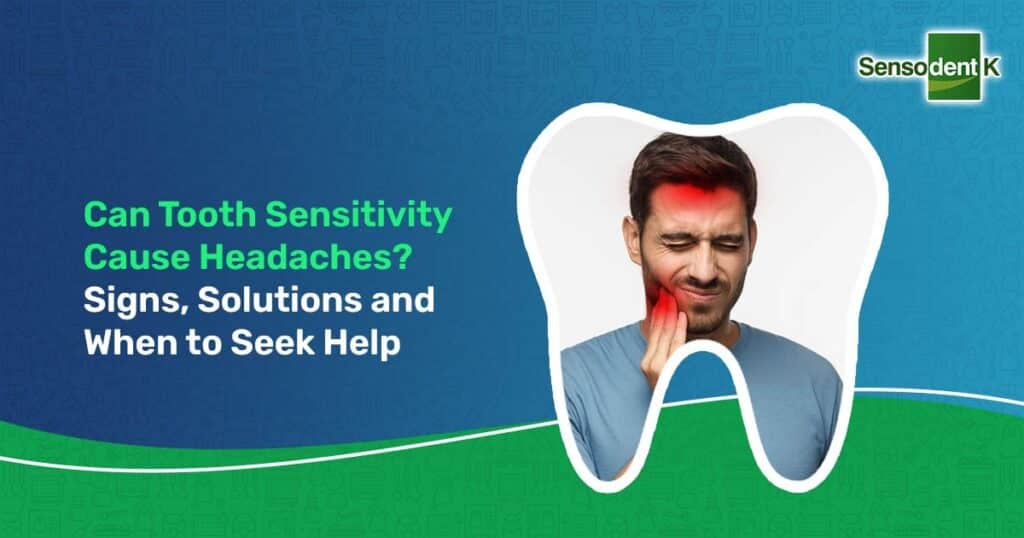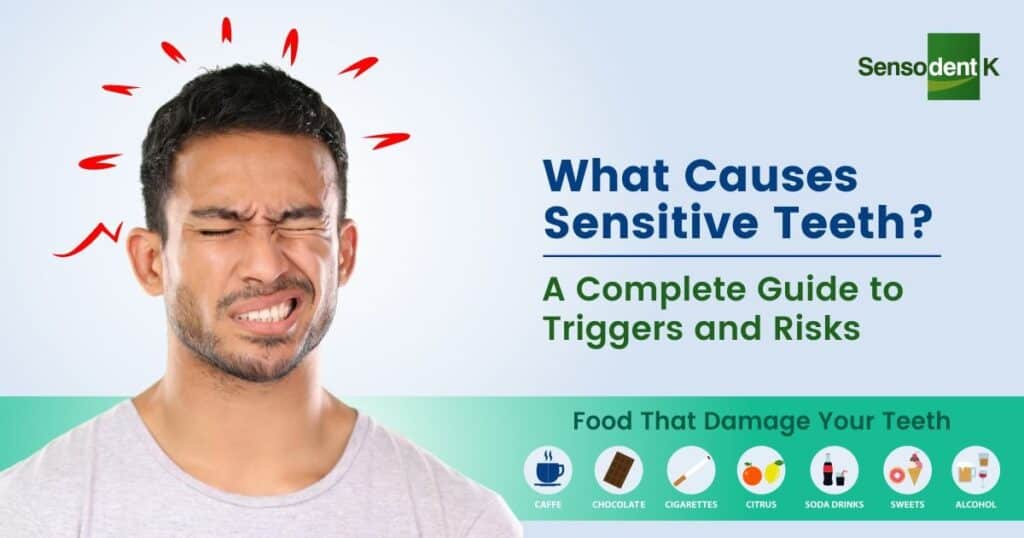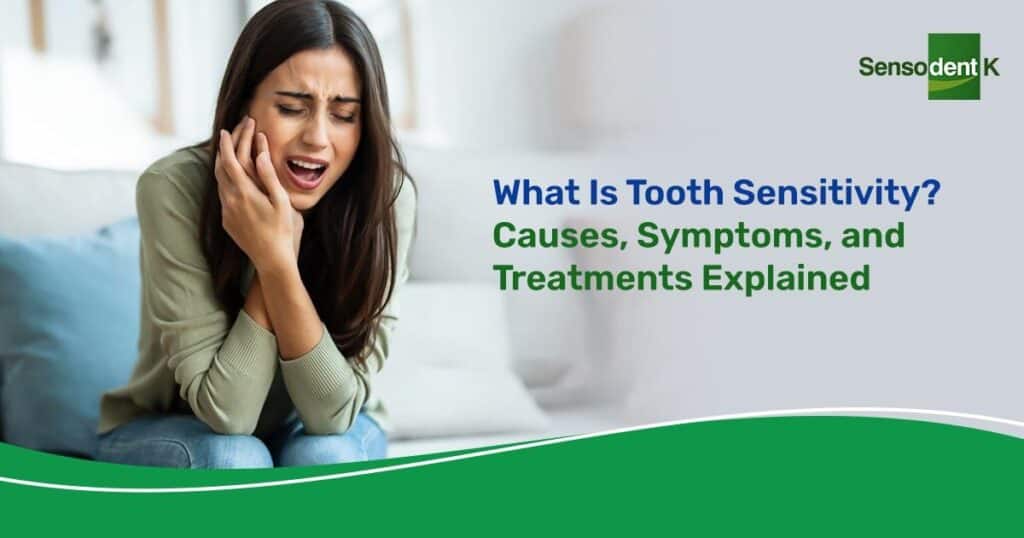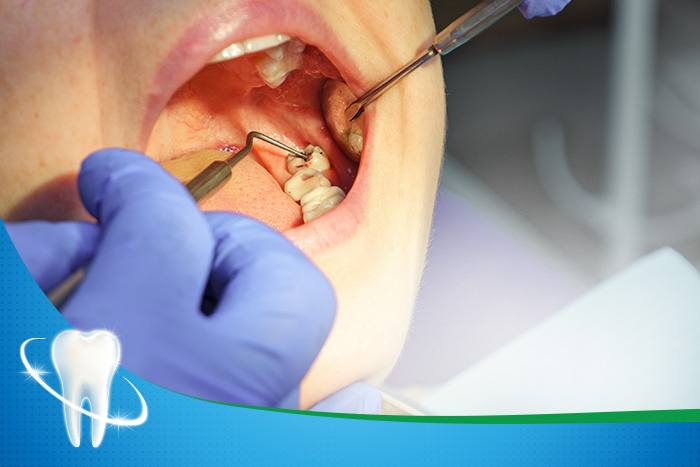Does Fluoride Make Your Teeth Sensitive? Myths vs. Facts Explained
Does Fluoride Make Your Teeth Sensitive? Myths vs. Facts Explained Fluoride has long been hailed as a guardian of dental health, with many swearing by its benefits in preventing cavities and strengthening enamel. Yet, a persistent question lingers: Does fluoride make your teeth sensitive? While some individuals report heightened sensitivity after fluoride treatments, others find relief from discomfort through its application. This blog aims to dissect prevalent myths surrounding fluoride and tooth sensitivity, presenting evidence-based facts to clarify the confusion. By delving into scientific research and expert opinions, we will explore whether fluoride contributes to or alleviates tooth sensitivity. For a comprehensive understanding of tooth sensitivity causes, symptoms, and treatments, refer to our detailed guide here: Tooth Sensitivity: Causes, Symptoms, and Treatments. What Exactly is Fluoride and Why is it Used in Dentistry? Fluoride is a naturally occurring mineral found in water, soil, and various foods. In dentistry, fluoride is utilized to strengthen tooth enamel, making it more resistant to decay. It is commonly added to public water supplies, dental products like toothpaste, and applied topically in dental clinics. Verywell Health. Key Points: Enamel Remineralization: Fluoride aids in the remineralization of enamel, reversing early signs of tooth decay. Decay Prevention: Regular use of fluoride helps prevent cavities by inhibiting the growth of harmful oral bacteria. Cost-Effective Oral Health Measure: Fluoridation of water supplies is a cost-effective public health measure to reduce dental decay. Widely Endorsed Practice: Organizations like the CDC, ADA, and WHO support the use of fluoride in dental care. Optimal Fluoride Levels: The U.S. Public Health Service recommends a fluoride concentration of 0.7 mg/L in drinking water to balance benefits and minimize risks. Myth vs. Fact: Can Fluoride Cause Tooth Sensitivity? Many people believe that fluoride itself can make teeth sensitive. This misconception often arises because some individuals notice discomfort after using highly concentrated fluoride treatments or immediately after a professional dental procedure. However, research shows that fluoride, when used appropriately, does not cause sensitivity. Instead, it strengthens enamel and protects teeth from decay, which can actually reduce sensitivity over time (PubMed – Fluoride and Tooth Sensitivity). It’s important to distinguish between temporary irritation and true sensitivity. Minor tingling or discomfort can occur if a fluoride varnish or gel is applied to exposed dentin, but this is usually short-lived and not harmful. In fact, these treatments are designed to alleviate long-term sensitivity, not create it. In reality, fluoride is one of the most effective tools for managing sensitive teeth, and consistent use helps protect enamel, block dentin tubules, and reduce discomfort from stimuli like cold, heat, or acidic foods. Related Blog: Ultimate Guide to Teeth Whitening in India: Cost, Benefits & Duration How Fluoride Helps Reduce Sensitivity Fluoride is widely recognized as a frontline solution for sensitive teeth. It works by strengthening enamel, protecting exposed dentin, and reducing the impact of acids that can aggravate sensitivity. Regular use of fluoride, whether through toothpaste, mouth rinses, or professional treatments, gradually reinforces tooth structure and minimizes discomfort. Dentists often recommend fluoride because it not only prevents decay but also actively reduces sensitivity by repairing microscopic enamel defects and sealing the pathways that lead to the tooth’s nerve endings. Let’s explore the key mechanisms: 1. Enamel Strengthening Fluoride promotes remineralization, a process where lost minerals are restored to weakened enamel. This fortifies the outer layer of the tooth, making it more resilient against everyday wear, acidic foods, and temperature changes. Stronger enamel acts as a protective shield, preventing stimuli such as cold or sweet foods from reaching the sensitive inner layers of the tooth. Over time, this reduces the frequency and intensity of sensitivity episodes. Regular exposure to fluoride—through toothpaste or professional treatments—helps maintain long-term enamel integrity, which is crucial for both cavity prevention and sensitivity management. 2. Dentin Tubule Sealing Beneath the enamel lies the dentin, filled with tiny microscopic channels called dentinal tubules. When these tubules are exposed, external stimuli can reach nerve endings, causing pain. Fluoride works by occluding or blocking these tubules, creating a barrier that prevents irritants like cold, heat, or acidic substances from triggering sensitivity. This tubule sealing effect is particularly effective when combined with professional fluoride varnishes or high-fluoride toothpaste. Sealing dentin tubules is a gradual process. With consistent use, fluoride reduces the permeability of dentin, ensuring long-lasting relief from sensitivity. 3. Reduced Acid Attack Acids from food, drinks, or bacterial activity can erode enamel, exposing dentin and triggering sensitivity. Fluoride enhances the acid resistance of enamel, making it less susceptible to demineralization. By neutralizing the effects of acids and promoting remineralization, fluoride restores the mineral balance of teeth and protects sensitive areas from further damage. This dual effect of protection and repair not only reduces sensitivity but also helps maintain overall oral health, making fluoride an essential component of a preventive dental care routine. When Sensitivity Might Occur with Fluoride Fluoride is generally safe and effective for reducing tooth sensitivity. However, in certain situations, sensitivity may still occur. It’s important to differentiate temporary sensitivity caused by fluoride itself from sensitivity that becomes apparent despite proper fluoride use. Understanding these distinctions ensures safe and effective oral care. Conditions Where Sensitivity May Occur: High-Concentration Fluoride Treatments: Professional treatments may cause temporary tingling if applied to exposed dentin. Enamel Wear or Gum Recession: Pre-existing conditions can make teeth more sensitive, regardless of fluoride use. Overuse of Fluoride Toothpaste or Rinses: Excessive use may cause mild irritation in some cases. Recent Dental Procedures: Sensitivity may arise post-treatment due to tooth exposure, not fluoride itself. Acidic or Abrasive Diet: Consuming acidic foods can temporarily heighten sensitivity, even with fluoride use. Underlying Dental Conditions: Untreated cavities or cracks may cause sensitivity unrelated to fluoride. Fluoride Treatments for Sensitive Teeth (Evidence-Based) Dentists often recommend fluoride as a frontline solution to manage tooth sensitivity. It works by strengthening enamel, sealing dentin tubules, and reducing pain caused by exposed dentin. Depending on the patient’s needs, fluoride can be delivered through professional in-clinic treatments, daily-use toothpaste, or supportive mouthrinses. 1. Fluoride Gel

